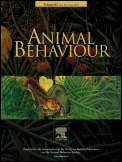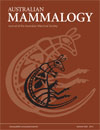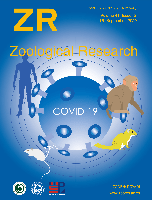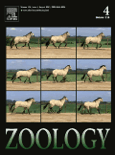
ANIMAL BEHAVIOUR
Scope & Guideline
Connecting Disciplines Through Animal Behavior Studies.
Introduction
Aims and Scopes
- Ecological and Evolutionary Contexts:
Research often examines how animal behavior is shaped by ecological pressures and evolutionary processes, including the adaptive significance of behaviors in various environments. - Social Dynamics and Interactions:
The journal publishes studies investigating social behaviors, interactions, and relationships within and between species, including cooperation, competition, and social learning. - Behavioral Mechanisms:
The exploration of the physiological and neurological underpinnings of behavior is a core focus, including studies on sensory processing, cognition, and decision-making. - Impact of Anthropogenic Factors:
A significant area of research involves understanding how human activities and environmental changes affect animal behavior, including responses to urbanization, climate change, and habitat destruction. - Comparative Studies:
The journal promotes comparative analyses across species to uncover universal principles of behavior and to understand the diversity of behavioral strategies in different taxa.
Trending and Emerging
- Cognitive Ecology and Decision-Making:
There is an increasing trend toward studying cognitive processes in animals, particularly how they make decisions in complex environments, which ties into behavioral ecology and evolutionary biology. - Anthropogenic Influences on Behavior:
Research examining how human-related factors, such as urbanization and climate change, impact animal behavior has gained momentum, highlighting the need for understanding species adaptation in changing environments. - Social Network Analysis:
The application of social network theory to animal behavior is emerging as a significant trend, allowing researchers to quantify and analyze social structures and interactions in animal populations. - Multimodal Communication:
Studies exploring how animals use multiple modes of communication (e.g., visual, auditory, chemical) to convey messages and interact with one another are increasingly popular, reflecting a more integrated approach to behavior. - Behavioral Plasticity:
Research focusing on behavioral flexibility and plasticity in response to environmental changes is on the rise, emphasizing the adaptive significance of behavior in fluctuating contexts.
Declining or Waning
- Behavioral Genetics:
Research focused on the genetic basis of behavior appears to be decreasing, possibly due to the challenges in linking genetic markers to specific behavioral traits in diverse species. - Classic Ethological Studies:
There has been a noticeable reduction in traditional ethological studies that emphasize observational methods in natural settings, as more researchers adopt experimental or ecological approaches. - Sexual Selection Models:
The frequency of studies centered on sexual selection mechanisms, particularly in controlled laboratory settings, seems to be declining, with more emphasis shifting towards ecological and evolutionary frameworks. - Invasive Species Behaviors:
Research specifically focused on the behavior of invasive species, while still relevant, appears to be less prevalent as the focus broadens to include broader ecological interactions and conservation efforts.
Similar Journals

ANIMAL BIOLOGY
Exploring the Intricacies of Animal LifeANIMAL BIOLOGY is a distinguished journal published by BRILL, focusing on the dynamic fields of Animal Science and Zoology, as well as Ecology, Evolution, Behavior, and Systematics. With an ISSN of 1570-7555 and an E-ISSN of 1570-7563, this quarterly journal serves as a pivotal platform for researchers and professionals seeking to contribute to the understanding of animal biology across diverse ecological contexts. The journal is recognized with a 2023 Scopus ranking of #234 out of 490 in the Animal Science and Zoology category, placing it within the 52nd percentile, alongside a rank of #409 out of 721 in Ecology, marking a solid contribution to the field. Although it currently holds a Q3 quartile in both categories, its commitment to quality research and novel insights continues to bolster its significance within the academic community. The open access option coupled with its publication history from 2003 to 2024 ensures a wide dissemination of knowledge, drawing in a global audience of researchers, professionals, and students eager to explore the intricacies of animal biology. By promoting high-quality discussions and innovative studies, ANIMAL BIOLOGY plays an essential role in advancing the understanding of life sciences and the evolution of biodiversity.

North-Western Journal of Zoology
Innovative Discoveries in North-Western ZoologyNorth-Western Journal of Zoology is a prominent scholarly publication dedicated to the field of zoology, fostering a vibrant exchange of research findings and insights among scientists, professionals, and students. Published by UNIV ORADEA PUBL HOUSE in Romania, this journal has been a reliable source for advancing knowledge in Animal Science and Zoology since its inception in 2008, with its publications spanning until 2024. With an engaging focus on innovative research and review articles, the journal proudly holds a Q3 quartile ranking in its category for 2023, positioning itself within the competitive landscape of Scopus Ranks. Although currently lacking an open-access model, the journal provides a valuable platform for disseminating critical findings essential to understanding animal biology and ecology. Researchers contributing to this journal benefit from a dedicated readership, furthering the discussion and practical applications of their work in diverse contexts.

AUSTRALIAN MAMMALOGY
Connecting Scholars to Australia's Rich BiodiversityAustralian Mammalogy, published by CSIRO PUBLISHING, is a pivotal journal in the fields of Animal Science and Zoology as well as Ecology, Evolution, Behavior and Systematics. With its ISSN 0310-0049 and E-ISSN 1836-7402, this esteemed journal has been instrumental in disseminating critical research findings since 2000, and continues to evolve up to 2024. Ranked in the Q2 quartile of both its categories for 2023, it showcases a diverse array of studies that contribute to understanding Australia’s unique mammalian fauna and its ecological dynamics. Researchers, professionals, and students will find valuable insights in its peer-reviewed articles, which are essential for advancing knowledge in these essential scientific disciplines. Located in Australia at UNIPARK, Locked Bag 10, Clayton, VIC, this journal remains committed to fostering scholarly communication within the global scientific community.

BEHAVIORAL ECOLOGY AND SOCIOBIOLOGY
Advancing Insights into Animal Behavior and Social DynamicsBehavioral Ecology and Sociobiology is a peer-reviewed journal published by Springer, focusing on the nuanced interactions between animal behavior and ecological factors. With an impressive history dating back to 1976, the journal has made significant contributions to the field, maintaining a prominent position in the top quartile (Q1) for both Animal Science and Zoology, as well as Ecology, Evolution, Behavior, and Systematics, as of 2023. Its high Scopus rank underscores its influence, being recognized in the 79th percentile for Animal Science and the 68th percentile for Ecology. This journal serves as an essential platform for researchers, professionals, and students interested in exploring the evolutionary implications of social structures and behavioral traits in various species. Although it does not currently operate under an open-access model, its rigorous peer-review process ensures that published studies meet high academic standards. With a vast array of innovative articles spanning decades, Behavioral Ecology and Sociobiology remains a vital resource for advancing our understanding of the complex interplay between behavior and ecological dynamics.

ZOOLOGICAL RESEARCH
Unveiling the Wonders of Zoology and EcologyZoological Research, published by Science Press, stands as a premier open-access journal in the fields of animal science, zoology, and ecology. Since its inception in 1980, it has fostered an inclusive platform for innovative research and dialogue within the scientific community, enabling researchers from across the globe to share their findings and insights. The journal's significant impact is underscored by its classification in the Q1 quartile across multiple categories, including Animal Science and Zoology, Ecology, and Nature Conservation for 2023, as well as its impressive rankings within Scopus, placing it in the top tier of its respective fields. Situated in Beijing, China, Zoological Research not only contributes to advancing knowledge but also emphasizes the critical importance of conservation practices in today’s rapidly changing ecosystems. With its commitment to open access, researchers, educators, and students alike benefit from immediate, unrestricted access to vital scientific information, making it an essential resource for anyone involved in the biological sciences.

Avian Biology Research
Championing conservation through innovative research.Avian Biology Research, published by SAGE PUBLICATIONS LTD, is a leading journal dedicated to advancing the study of avian species through high-quality, peer-reviewed research. With an ISSN of 1758-1559 and an E-ISSN of 1758-1567, this journal has established itself as a vital resource within the fields of Animal Science and Zoology, as well as Ecology, Evolution, Behavior, and Systematics. The journal is currently ranked Q3 in both categories according to the 2023 release of the category quartiles, and it contributes significantly to the global understanding of avian biology, including behavior, physiology, and conservation efforts. Positioned within the competitive landscape of the Scopus rankings, it finds itself amidst a diverse array of research, with medical and environmental implications. As an open-access journal, Avian Biology Research ensures greater accessibility to its contents, fostering disseminative opportunities for researchers, professionals, and students alike. With a publication window spanning from 2008 to 2024, it continues to be an invaluable platform for the dissemination and dialogue of avian research, thereby enlightening future inquiries and driving scientific advancements in this crucial area of biology.

Journal of Vertebrate Biology
Fostering academic discourse on vertebrate evolution.Journal of Vertebrate Biology, a reputable publication established by the Institute of Vertebrate Biology in the Czech Republic, serves as a vital platform for research across the fields of Animal Science and Zoology, Aquatic Science, and Ecology, Evolution, Behavior and Systematics. With its ISSN 2694-7684 and a commendable 2023 Q2 ranking in multiple categories, this open-access journal embraces innovative scientific inquiry and fosters academic discourse. The journal's commitment to disseminating high-quality research is reflected in its Scopus rankings, positioning it within the top quartile in several impactful areas. As it continues to converge its focus until 2024, researchers, professionals, and students alike are encouraged to engage with cutting-edge studies that advance our understanding of vertebrate biology. This publication stands out not only in its scholarly contributions but also in enhancing global awareness of biodiversity and conservation issues.

BMC Zoology
Fostering collaboration in zoological research.BMC Zoology, published by BMC, is a distinguished open-access journal that has been advancing the field of zoological research since its inception in 2016. With an impressive Q2 ranking in both Animal Science and Zoology categories as of 2023, the journal occupies a significant position in the academic landscape, engaging a global readership dedicated to the exploration of animal biology. Based in the United Kingdom, BMC Zoology prides itself on providing a platform for innovative research, fostering collaboration among scientists, and facilitating access to high-quality scholarly articles. Researchers and practitioners in zoology can benefit from its extensive repository of articles that span various areas including conservation, ecology, and evolutionary biology. As an essential resource for scholars and students alike, BMC Zoology commits to enhancing the dissemination of knowledge in the zoological sciences through its open-access model, ensuring widespread access to cutting-edge research findings.

ZOOLOGICHESKY ZHURNAL
Advancing the frontiers of zoological knowledge since 1950.Zoologichesky Zhurnal, a prominent journal in the field of Ecology, Evolution, Behavior and Systematics, has been a vital publication since its inception in 1950. Published by MAIK Nauka-Interperiodica in the Russian Federation, this journal has established a notable reputation in disseminating scientific research and advancing knowledge in zoology. With its coverage spanning from 1950 to 2023, and a specific convergent focus during 1982-1983, this journal contributes significantly to the ecological and evolutionary sciences, even though it currently holds a Q4 classification in the 2023 category quartiles, indicating its niche positioning among peers. Researchers and students engaged in the study of biological sciences, particularly those interested in the dynamics of ecosystems, behavior of species, and evolutionary processes, will find valuable insights and original research articles within its pages. While access to this esteemed journal is not open, it remains an essential resource for those seeking to deepen their understanding of zoological sciences.

ZOOLOGY
Unlocking the mysteries of the animal kingdom.ZOOLOGY, an esteemed journal published by Elsevier GmbH, stands at the forefront of research in the Animal Science and Zoology fields. With a notable impact factor and recognized as a Q1 category journal in its discipline, ZOOLOGY is highly regarded among researchers, ranking #98 out of 490 in Scopus rankings. Founded in 1994 and continuing through to 2024, the journal aims to publish cutting-edge, peer-reviewed articles that contribute significantly to the understanding of zoological sciences. Based in Munich, Germany, ZOOLOGY provides both subscription and open access options, ensuring that influential research reaches a wider audience. It serves as an essential platform for disseminating innovative findings, connecting scholars globally, and fostering interdisciplinary collaboration to advance zoological knowledge.